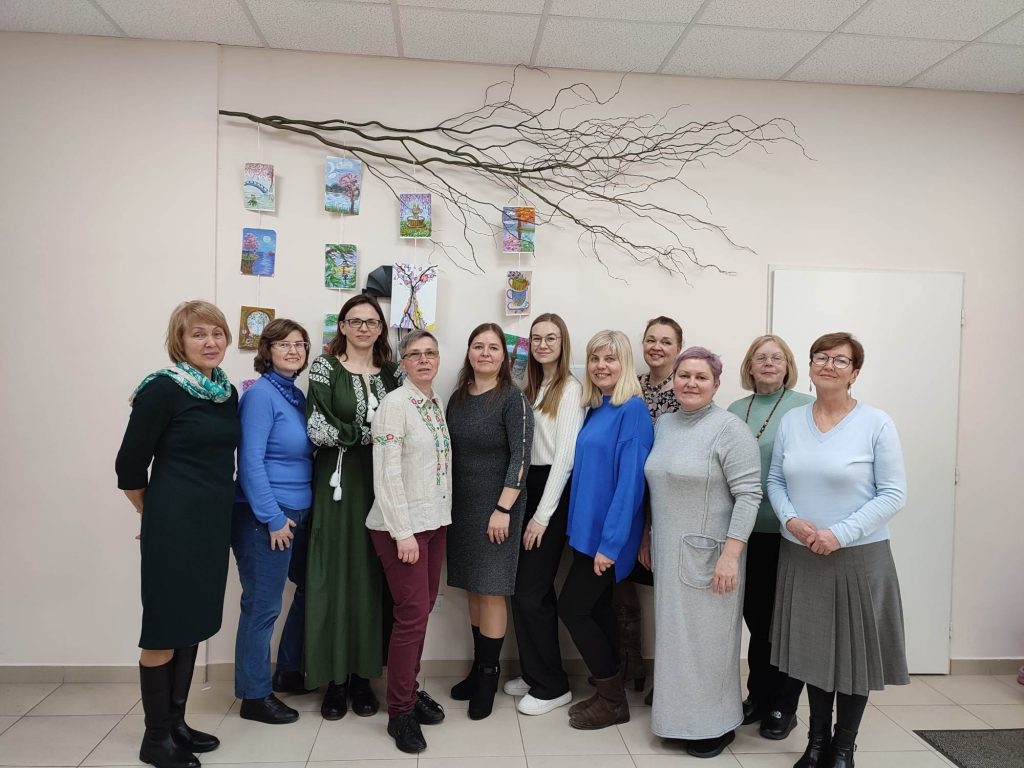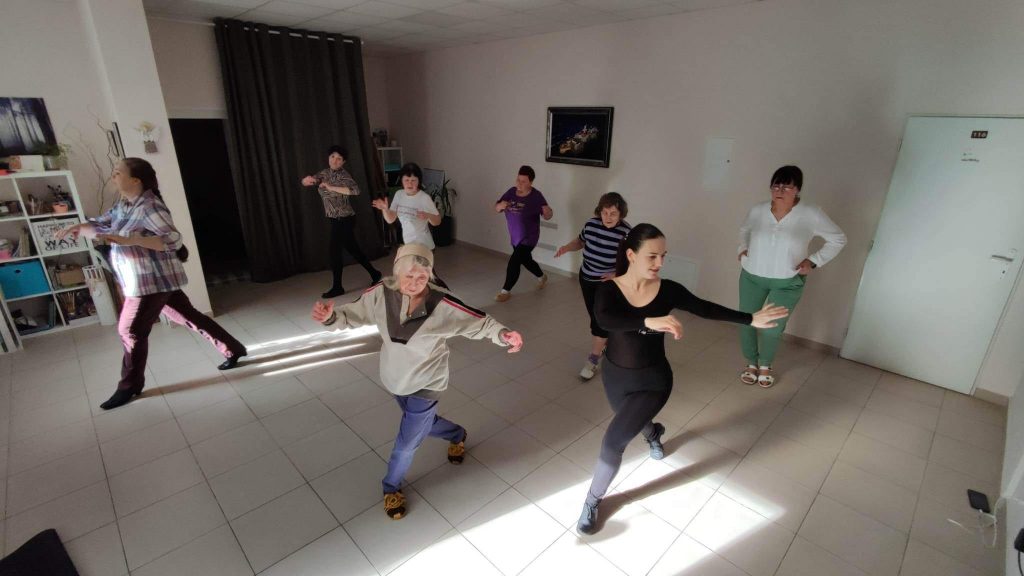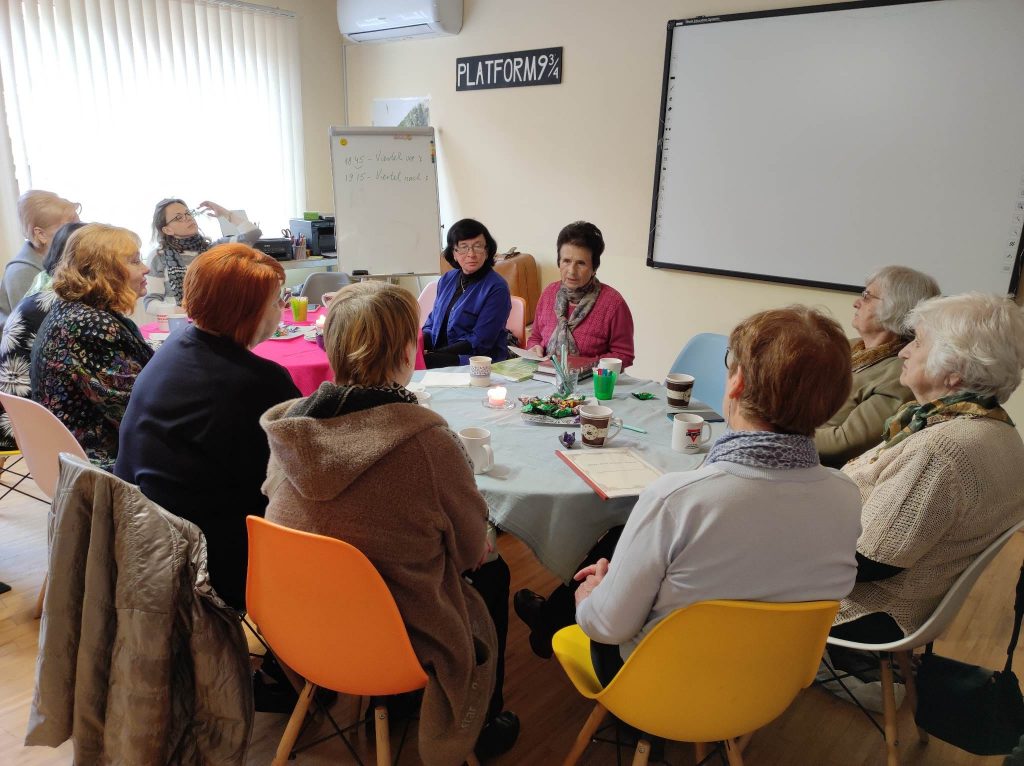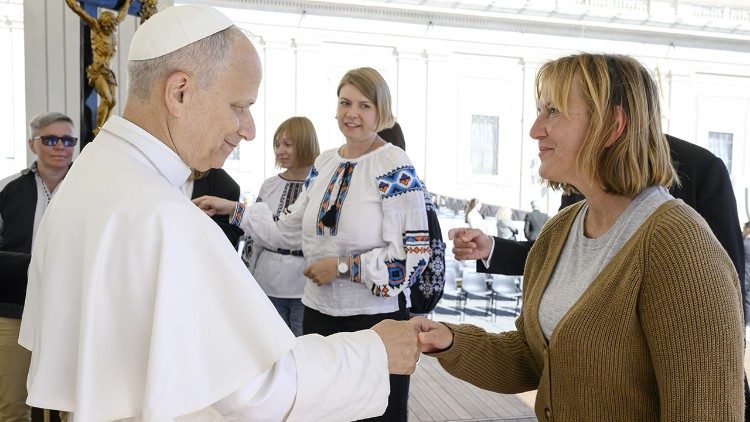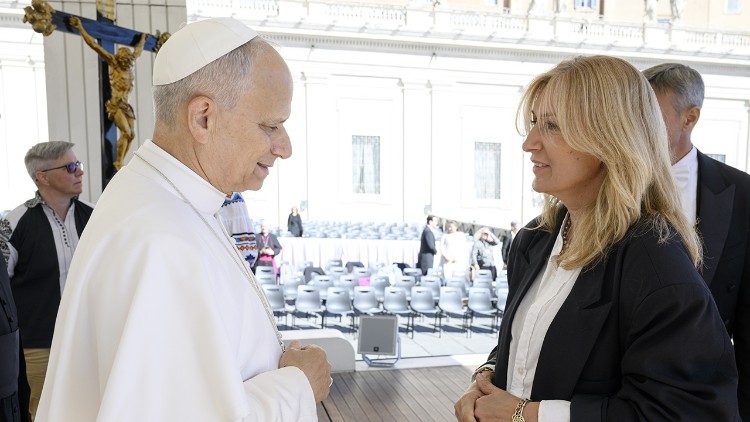The Tree of My Life. A story of support

“The role of the church in society during the war”: a roundtable discussion at Uzhgorod National University
27.06.2023
“Majestic Laboratory” in the “Tree of My Life” space
04.07.2023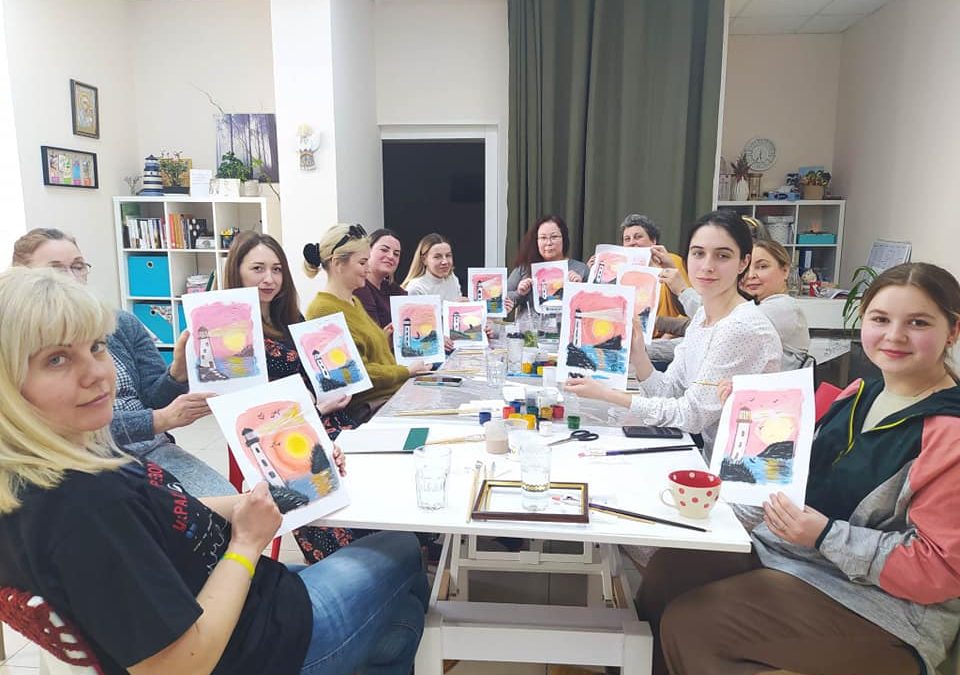
Recently, Uzhhorod residents were discussing Masha on social media. Since Uzhhorod is a small city, Masha’s appearance about a year ago was very noticeable to everyone. And she herself did everything she could to make it impossible not to notice her: she walked the streets and shouted: “I am Mariupol,” grabbing passing girls by the hair, swearing at people, talking loudly to herself. To be more precise, she was (and is) always talking to someone – recently she went to a store in the city center and was choosing clothes for a man whom no one else had seen.
People tell different stories about Masha: some say that her husband and child were killed in Mariupol, others that her husband left her in Mykolaiv.
One thing is for sure: the young woman has a great psychological trauma caused or exacerbated by the war and forced displacement from her hometown. And this short story clearly shows how important psycho-emotional support is for those who have suffered from war or participated in hostilities.
It is in this direction that the charitable organization “Tree of My Life” has been working for more than a year in Uzhhorod, Mukachevo and Svaliava, a space where hundreds of people recreate their resources, find peace, strength and new friends. The organization was founded by Liubov Mykhailyuk and Ksenia Ternavska, who had personal experience working with the IDPs of the 2014 wave, helping military personnel and working with volunteers. On March 1, 2022, they welcomed the first people fleeing the war in a hastily created space, paying special attention to single elderly people who were perhaps the most difficult to bear the loss of their usual life, property, and friendships.
To help the IDPs adapt to their new location, Tree of My Life premises on Pravoslavna Embankment in Uzhhorod and formed four diverse psycho-emotional support groups. Two more such groups worked in Mukachevo and one in Svaliava. From the very beginning, the organization’s activities were approved and supported by two bishops, Greek Catholic Bishop Neil and Titular Bishop of Giru Marcelli, Auxiliary Bishop of Mukachevo, Mykola Luchok.
Every day, since the beginning of the full-scale invasion, more and more people came to the psychological and educational space “The Tree of My Life”. We started with seven groups and have now reached fifteen. Art therapy intuitive drawing, transformational games, fitness, speech therapy, a support group for volunteers, a support group for family members of military personnel – this is just a small part of what the Tree of My Life does. “We want to become a shore where you can stop and relax,” the founders of the space tell those who come there. In response, they once heard from a 70-year-old woman from the Kharkiv village of Saltivka that they were not even a shore for her, but a whole island of salvation.
In early 2022, when a lot of IDPs arrived in Zakarpattia, the organization’s psychologists first helped them to stop, to “ground” themselves, to understand where they were and what they should do next. It was a new experience, because everyone was having a hard time accepting what they had experienced.
In 2014-2015, during the first wave of resettlement, Ukrainian psychologists had almost no experience working with people with so-called secondary losses (the loss of a habitual way of life, work, property, social ties, etc.). Since then, the situation has changed for the better – and yet the scale of what was happening at the beginning of the full-scale invasion was difficult to comprehend and accept even for the most trained people.
Nowadays, Liubov Mykhailyuk and Ksenia Tarnavska can calmly recall numerous stories told by IDPs – they even smile when they tell the story of the actors of the Mariupol theater who fled the city after the infamous bombing in their theater costumes.
And when they ran out of gas, one of the actors dressed as Batman walked to a gas station, where he stunned everyone so much that they sold him gasoline without waiting in line.
Back then, every story was like a stone on my heart, and it was very difficult to work emotionally.
The “Tree of My Life” advises the participants (and now our readers) to support their resources as much as possible, to listen to themselves, and to allow themselves to enjoy life. “In the context of today’s world, each of us must do our best for ourselves and our country,” explains Liubov Mykhailiuk.
– “But we also have to remain a strong backbone to lean on. So if we feel a loss of strength, devastation, it is a sign that we need to take care of ourselves a little more. Everyone should think about where their strength lies: in their relationship with their family, in reading, in communication with God, in their favorite hobby.
This, by the way, also applies to military personnel who, even on the front line, sing, dance, read, take care of dogs and cats – that is, replenish their resources. This is the right way for everyone to stay strong and not “crumble.” Ukraine is now showing the world the extraordinary activity of its society. It is very important to keep it up, because we are facing very difficult times ahead.”
So, feel free to rest whenever you feel you need it. However, The “Tree of My Life” reasonably notes that this should be done in an appropriate time, not forgetting that a war is still raging in our common home.
Modern Ukrainians in general should reconsider their habitual behavior and etiquette, and realize that society will not be the same as before.
The behavior of people on the streets, in shops, in transport should be adequate, taking into account the fact that there may be people traumatized by the war. It is necessary to work with children so that they respond adequately to people with physical injuries whom they meet. Even now, the families of soldiers are beginning to wonder how to prepare for their return from the war, so “Tree of My Life” has support groups that anyone interested can join for free.
“Psychological education is now a very important part of our work,” the founders of the organization continue, ”Recently, we had a meeting with Bogdan, an Azov soldier released from captivity, with whom we talked about various topics, including the rehabilitation of military personnel. In the United States, for example, soldiers do not immediately go home after completing their contract – they are first sent to a rehabilitation center for 3 months. There they recover: they sleep a lot, eat well, get back in shape, attend support groups where they talk about what they have been through.
After what they have been through, the guys here often want to go home as soon as possible, thinking that they will feel as they did before. But this is a misleading idea – nothing will ever be the same as before the experience. The wound of war is too deep.
That’s why soldiers at home may feel uncomfortable at first, they may feel that no one understands them, they may be disoriented, they may break down into alcohol.”
The “Tree of My Life” is already working with the families of servicemen in group sessions on how relationships can change and how to perceive changes in a person who has returned from war or captivity. Support groups for wives and mothers of fallen soldiers are also ready to start working, but they cannot start yet due to the small number of participants. In Zakarpattia, people are not used to going to psychologists or support groups for this kind of problem; they would rather go to church or a fortune teller. But sometimes it is easier to experience grief together, in a circle of those who are in the same pain.
Following the same principle, the “Tree of My Life” is preparing to set up support groups for military personnel. The group sessions will be conducted by psychologists with combat experience, a point that was once again confirmed by Bogdan, an Azov soldier mentioned above, who told how his friend had brought a civilian psychologist to tears with a story. The future group for military personnel should be a safe and friendly environment where they can express their concerns.
We also asked for some tips on communicating with returning and returning soldiers. “There should be maximum tolerance on our part, because people with physical and emotional trauma (this applies not only to military personnel, but also to IDPs and people who lived under occupation) are very sensitive.
It is absolutely unacceptable to say something like: “I did not send you there”. The emotional instability of traumatized people can easily cause them to become aggressive. We have to be as stable as possible, respond adequately to anger, and the best thing to do is to leave immediately and extinguish the conflict. You can’t “pry into a person’s soul” and ask: “How many people have you killed?”
You cannot suddenly approach from behind. Instead, you need to clearly explain your plans to the person, prepare them for what will happen at home, at work, etc.”, advise Lyubov Mykhailyuk and Ksenia Ternavska.
They warn that after the war, we will see violence, suicide, and alcohol problems among former military personnel, and it will depend on society to overcome this as soon as possible. That is why at this stage, the Tree of My Life is not only stabilizing the participants, but also conducting educational work and working for the future. And the results will be the fruits that the tree, as a symbol of the organization, will give to society.
Source – zaholovok.com.ua
